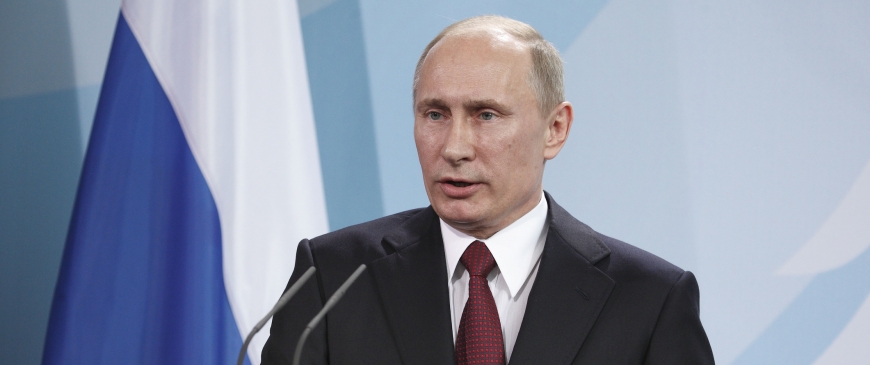
Between Russia and the EU, Eastern Europe's future is uncertain
It is three years since Russia annexed Ukraine’s Crimean peninsula and began its covert invasion of eastern Ukraine. At the time, it seemed like the start of a more ambitious land-grab.
President Vladimir Putin implied that Ukrainian and Belarusian independence was only a historical anomaly. When he described Russians as “one of the biggest, if not the biggest ethnic group in the world to be divided by borders,” Russia’s neighbors — some of them homes to large Russian minorities — wondered whether he meant to erase those borders.
Three years on, Putin’s project has clearly failed. Though he still holds Crimea and parts of eastern Ukraine, he has alienated the rest of Ukraine. But the West also has little to congratulate itself on. Eastern Europe, dotted with frozen conflicts of Russia’s making, is stuck in transition to an uncertain future.
The European Union has consistently dodged the issue of possible EU membership for any of the six former Soviet states that lie in Europe (Armenia, Azerbaijan, Belarus, Georgia, Moldova and Ukraine). NATO leaders agreed in 2008 that Georgia and Ukraine “will become members of NATO.” But after Russia invaded Georgia in 2008 and Ukraine in 2014, NATO dragged its feet on fulfilling that promise.
Russia has a clearer vision for the region than the West does. It has never treated the six states as fully sovereign. After Putin became president for the third time, in 2012, he stepped up efforts to keep former Soviet states inside what his predecessor, Dmitriy Medvedev, described as a “region of privileged interests”. But Moscow’s willingness to use economic and military coercion in its neighborhood has alienated many who might otherwise have felt an affinity with Russia.
Few Western leaders want to admit that Russia has a veto on its neighbors’ foreign policies. But even fewer want a fight with Russia. Eastern Europeans who want their countries to meet European standards of governance and join Western institutions have become disillusioned by the West’s failure to offer full-throated support. So what can Eastern European countries do if they do not want to be in Russia’s orbit but cannot join Western institutions?
The top priority should be establishing the rule of law. Countries where courts work and laws are stable will be more attractive to foreign investors and less vulnerable to economic pressure. The West can help by making it harder for local elites to launder the proceeds of corruption through the EU or US.
Ensuring that minority ethnic groups are fairly treated is also vital. Disaffected minorities have been fertile soil for Russia to promote separatist conflicts — there is less scope for mischief if all communities have a stake in society.
Geography and economics mean that the Eastern Partnership countries would benefit from good political and trade relations with Russia. They should not shy away from this, as long as relations are on the basis of sovereign equality, consistent rules and mutual benefit.
The West should use the coming years to try to persuade Moscow that, whether or not these countries join Western institutions (and even the most advanced are decades away from membership), it is in everyone’s interests that they should be prosperous, stable and well-governed.
But the biggest policy shift must come from Russia, which continues to behave as though its fate depends on controlling its neighbours. Europe’s other imperial powers have realised that it is better to create shared economic and other interests with former possessions than to try to coerce them. It is time for Russia too to give up its nostalgia for empire.
Ian Bond is director of foreign policy at the Centre for European Reform.
